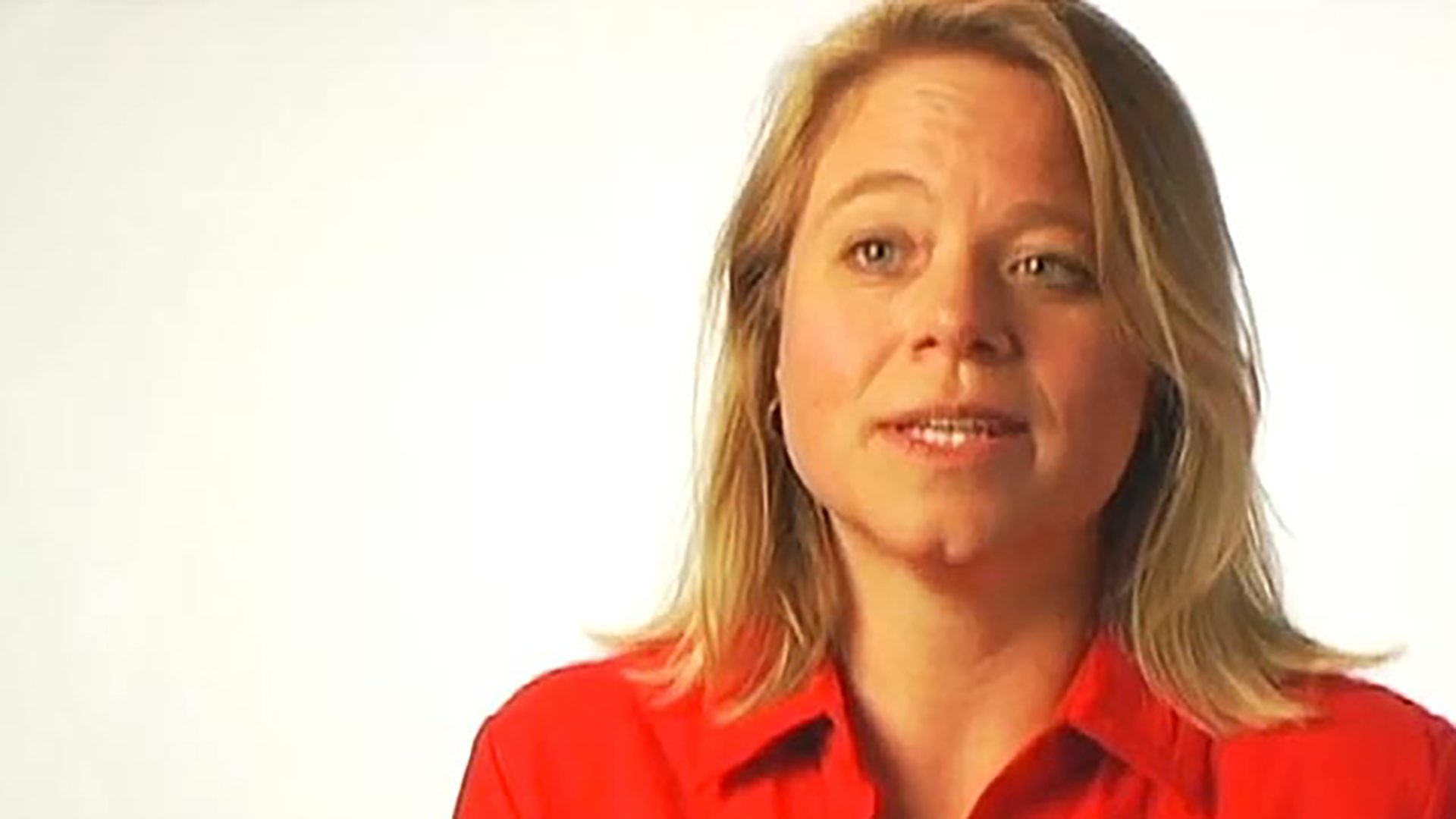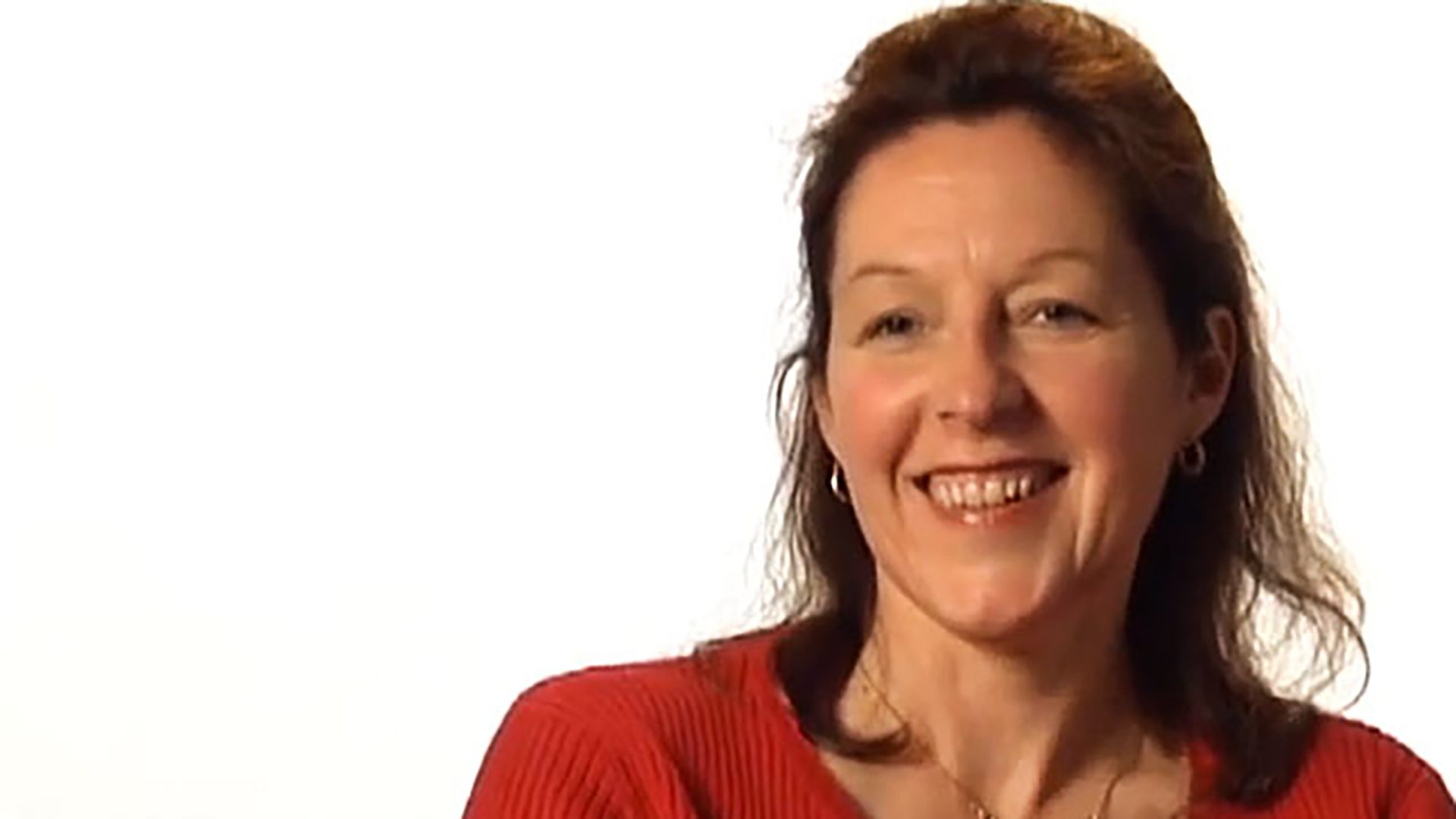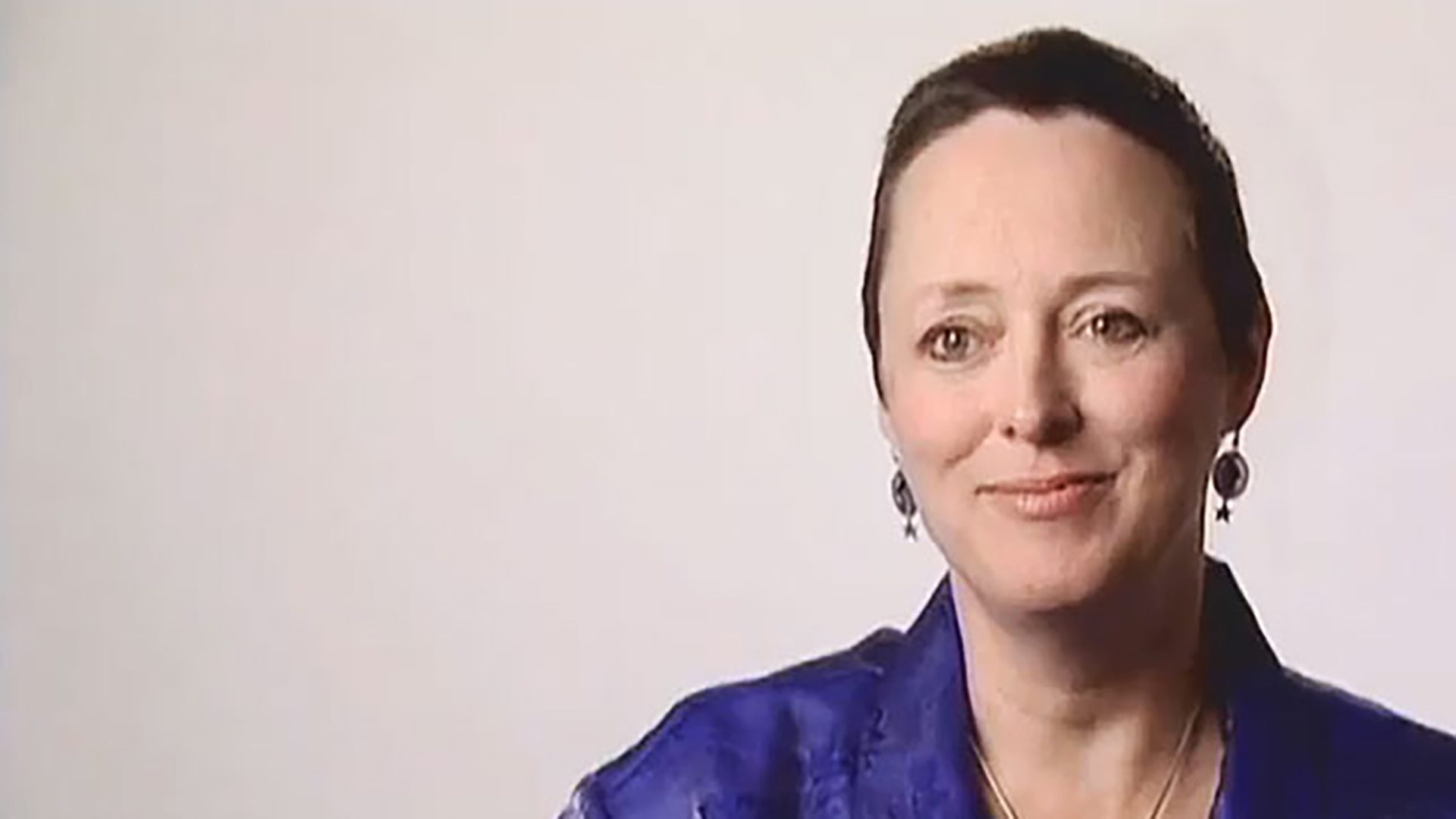Survivor Interview – Robin K.
Robin is a melanoma survivor. She talks about communicating with your health care team, finding emotional support with cancer, and being spiritual.

I became a survivor the day I was diagnosed at the end of October 1989.
I had noticed a spot on my lower left leg that I had never remembered seeing there before. Something inside of me was like, “There’s something with this.” I talked to my doctor, and I was told that it was fine. Normal. Nothing to worry about. Over the course of the next nine months, I went back and asked her about it a couple more times. She kept saying everything was fine until finally in October of ’89, she said, “If you want, I can take it off, biopsy it and see what it is.” About two days later, I was told that it was malignant melanoma. Clark’s Level I skin cancer. That really blew me away. I had just turned thirty years old about a month-and-a-half prior to that, and my family usually lives to be in their mid-90’s. This totally caught me off guard.
They incised, went in about four inches, almost to the bone, and took out all the area to make sure that it hadn’t spread anywhere. Fortunately, it hadn’t spread anywhere, so the prognosis was pretty good for that. After the surgery on my leg, I saw my specialist for checkups four times a year for a couple of years. We gradually decreased it and got down to once a year. I’ve had various biopsies. I had two more that came back abnormal that were not actually melanoma, but they potentially could go there. With my melanoma history, we took those off. I went back to seeing him three times a year and now I still see him twice a year. It’s been coming on 15 years now. I plan to keep seeing him probably twice a year for as long as he’s around.
I’ve got a lot of moles. My moles don’t show abnormally. The one that actually turned out to be melanoma was 6-millimeters, which is the size you look for, and it had a darker spot in the center of it. But it didn’t have the other symptoms around it that you typically hear for melanoma. In that sense, I was just going on my gut-sense. I really invite people to honor that piece about themselves, if they have a sense that there’s something wrong, go for it and find out. For the rest of mine that we’ve had biopsied, sometimes they were showing symptoms and sometimes they weren’t.
I’m an outdoors person, so I ride bikes, ski and do things like that. I will go out anytime during the day but every time I go out, I put on sunblock, SPF-30 or higher. I always wear that. There’s a big bike ride called the Seattle to Portland Bike Ride that I rode in a couple of years ago. You’re out during the day, the whole time. Literally every two hours, I was putting more on and it got so there was so much on, it kind of lathered itself up. But I was really, really aware. I put on sunblock whenever I’m going outside for an activity. If I’m downhill skiing and it’s 20?-below, or out riding my bike in the summertime, I’ll put it on.
I stress the importance of having a good relationship with any physician that you might have, because my doctor is wonderful. Anything that I have a concern about, he takes seriously. I know that anytime between my six months’ when I go in to see him, if something comes up, I can call him at the drop of a hat. So that gives me a sense of security also. It’s important for me to have a doctor that I can talk to and that I completely trust.
Back then, I was terrified about death and dying. I didn’t know anything about it. I didn’t have any faith. I just knew I didn’t want to die. I was way too young to die. I am really thankful that I came to know the Lord several years ago. That’s something I feel totally comfortable with. It doesn’t bother me at all. My faith is something that’s really important to me. Coming to know the Lord, and being certain about what happens to me in the future, and where I’m going. I think if something came up again, if had another diagnosis, I know that I have the strength in myself now that I would be able to handle it so much better than I did when I had this first diagnosis. I have a lot more strength based on my faith.
Talking about being a survivor has gone through stages over the years. In the beginning, I don’t think I talked about it that much. Then when I did start talking about it, it was something that I felt pretty passionately about and really wanted to share with other people. I really support other people that might have concerns for their own health. I want to validate for people any time they have concerns. That was one of the biggest things. If I hadn’t been as proactive at having my doctor look at it, I might’ve been dead because according to my doctor, it was okay. I really advocate for people to follow up as much as they need to until they feel comfortable with what they may be talking to their doctor about.
My family relationship is wonderful. It really meant a lot to me that my dad came and helped take care of me. Over the years, I’ve had a very supportive family as far as being able to share with them and talk with them. Earlier on in the days when I was feeling a lot more emotional, they were a big support. I would invite families to support any members that have had cancer and be there to listen to them. I think stepping up and honoring them as a survivor is something that could be powerful to do. I know it was really powerful to me.
We have a Team Survivor Northwest Group, which is for cancer survivors. I would advocate for any woman cancer survivor to be a part of that group. I think the support that we can get from each other is phenomenal. I know when we get together for the Danskin; we have a meeting for the cancer survivors the day before and are able to hear other people. Again, the community, hearing peoples’ stories, and being able to share is really healing. It’s bonding for people. I would strongly advocate for people to get hooked up and connected to a community.
There’s life after cancer. I feel like I’m living a very full life. It may be in the back of my head every once in a while, and I know that’s been a part of my life, but there is definitely life after cancer. There’s definitely a reason to live, and continue on, and to pursue whatever it is that you want to pursue. You can get out, have fun and do activities with melanoma. You don’t have to be afraid of the sun. There are precautions and things you have to do, but there’s no reason that you can’t be outdoors doing whatever it is you want to do in the sun. Or the clouds.
Live Strong means that I can get up every day, and I can face the day. I can do whatever it is that I want. I am a strong person no matter what has happened to me in the past. I’m moving forward, and I’m strong. I can live life to its fullest and there’s nothing that has to hold me back at all.
I live strong by my faith in God. I live strong by keeping myself emotionally, mentally and physically in as strong of a place as I can be. I think relationships are extremely important. I know they’re important in my life. I am working at developing a lot of good, solid relationships with people because that’s probably one of the most important things that we can have in our life is having solid, strong relationships. I go out and have fun, ride the bike for a hundred miles and have a good day.
My name is Robin Kinney, and I’m a 15-year melanoma survivor.

